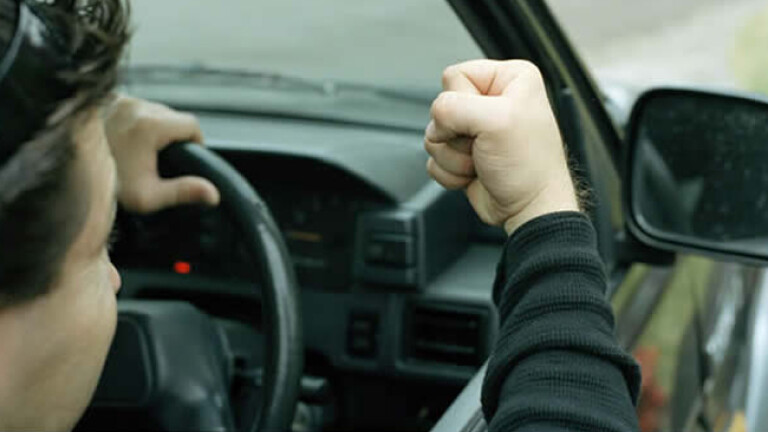
Picture this; you’re driving to work on a regular weekday. You weave your way around your neighbourhood and make your way onto the freeway which appears clear for now.
Its the start of a long day, hundreds of thoughts preoccupy your mind the least of which is the impatient driving of the car behind you, but at the very last second you see a flash in your rear vision mirror and then you feel it; the sudden unstoppable crash coming from the rear.
It forces your head against the headrest and makes you feel the tight grip of your seatbelt. Luckily you had your foot on the brake and left enough distance to the car in front of you to avoid hitting them. But the shocking feeling remains, you're dazed and confused - you have just been involved in a car accident and now you're not sure what to do?
This scenario is played out all too often in our cities. And there seems to be not enough information around to what to do if it happens to you. But there are of course things you should never do...
Don’t get angry.
After you realised you and your passengers are ok you'll have adrenalin running through your body and you'll just want to get out and go ape at the driver who just ruined your morning.
This won't accomplish anything. Don't jump out of the car, instead take a breath and turn off the car if its still running. It still might be in gear, or you might be on a slight hill, so stop the car, put the automatic gearbox into P or manual into Neutral and pull up the handbrake. This only takes a second and it can be often overlooked. Turn on your hazard lights too.
Don’t ignore your passengers.
You can be often so wound up that you totally forget that your mother in law was in the passenger's seat. If you have any passengers, check their condition. Don't just assume they are ok if they say so. Sometimes people do not realise they are injured or hurt. Physically inspect your passengers. Really make sure everyone is fine. If someone is injured and you don't have first aid training, call Emergency assistance immediately, 000, ask them to guide you through the right steps. Moving someone that is injured could hurt them further.
Don’t just leave your car there.
Once you and any passengers or bystanders are OK, look at the car and situation you are in. Is it leaking petrol? Take note. Warn others to stay back. If you are still stopped in the middle of a freeway and your car is driveable, move it off the road. Don't worry about anyone else involved in the accident yelling at you just yet, simply drive your car and park it. If you were responsible for the accident, do the same. If the other party involved thinks you will just drive off let them call the Police. The first thing the Police will do when they arrive is to move the cars off the road. You are only moving your car a few meters and not leaving the scene. Relatively minor accidents where the cars are still perfectly driveable are a major cause of massive traffic disruptions. The traffic behind you can bank up for kilometres, so clear the road as soon as you can. If the car is beyond driving, keep clear from the road and warn oncoming traffic of the accident.
Don’t forget to get all details.
Now is the time to exchange details. Provide your name, address as it appears on your licence, date of birth, licence number and state, car registration (number plate) and any insurance policy details (usually name of insurer and policy number).
Obtain the same details for any other drivers involved. Also take note of the make model and colour of any cars involved and the location and time and date of the accident. If you have a mobile phone with a camera, use it to photograph the location and the damage to the cars.
One important detail here is to never admit fault or claim responsibility. Leave that to the Police or insurance companies. Also if there are any witnesses available or the Police have arrived, note their names and details. It also can help to sketch out a diagram of the accident, especially if there were more than two cars involved.
Once this is completed, you are free of your obligations and can continue on your journey. Call the Police if a person has been killed or injured, the other party fails to stop or supply details, a vehicle has been towed, any property has been damaged. If any driver involved appears to be under the influence of drugs or alcohol, also call the Police as soon as you can.
Accidents should always be reported to the Police, and this can be done by filling out an Accident Report Form at any Police station at a later date.
Don’t wait to call your insurance company.
Do it as soon as you can. Some policies may have a clause which voids the claim if it is not reported by a certain time. Even if your car is drivable, call them as soon as you can. They can arrange towing if needed and will guide you along the repair process. You pay them to help you, so make use of their services.
Yes, accidents are stressful and annoying for all involved. Keeping calm, alert and following logical procedures means that you can get on your way quickly and without causing more undue stress.

COMMENTS